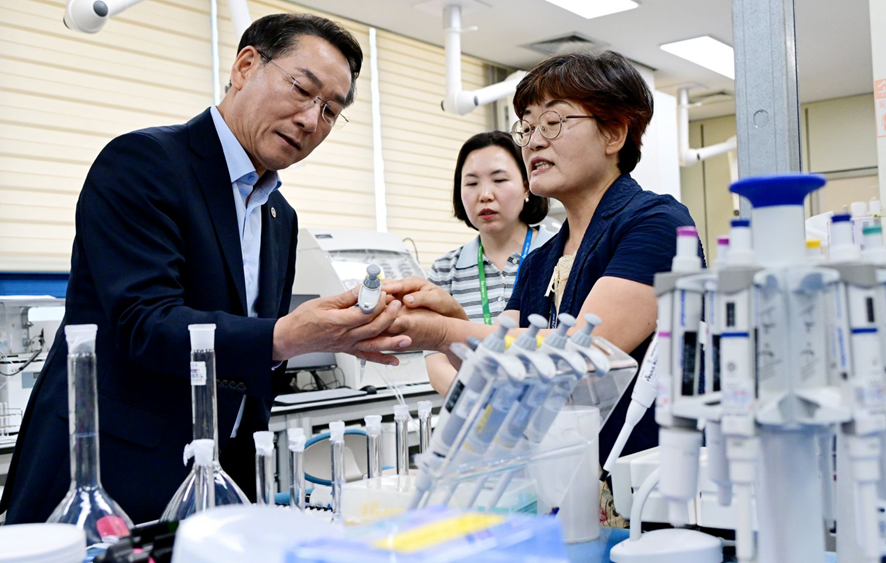-Institute of Health and Environment findings confirm normal range and emphasize continued monitoring
The City of Incheon (Mayor Yoo Jeong-bok) announced on July 8 that it has received a report from the Incheon Institute of Health and Environment on the analysis results of samples collected from North Korea's nuclear wastewater and confirmed its stability.
"As a result of the Incheon Institute of Health and Environment's investigation, all readings were found to be in the normal range, and it is believed that the situation that citizens are concerned about has not occurred," Mayor Yoo said. "Nevertheless, we will continue to monitor and follow up on the situation," he added.
Earlier, in response to ongoing allegations of unauthorized discharge of nuclear wastewater from a uranium refinery in Pyongsan County, North Hwanghae Province, the Nuclear Safety Commission announced that the results of surveillance network measurements at 244 locations nationwide were within normal limits. However, as public anxiety remained unabated after the NSC's announcement, the Nuclear and Maritime Authority only conducted a special survey on the fourth of this month, the results of which will be released after about two weeks of analysis.
However, Mayor Yoo Jung-bok ordered an immediate investigation immediately after the news broke, and the Incheon Institute of Health and Environment began collecting seawater from the waters southwest of Jumun Island, the southern end of the Gyodong Bridge, and the northern part of Seogum Island on March 3, and launched an urgent water quality survey, which allowed the central government to identify the situation more quickly.
"An inter-ministerial 'West Sea Environmental Monitoring Special Team' involving the Ministry of Oceans and Fisheries and the Nuclear Safety Commission should be formed as soon as possible," Mayor Yoo said, adding, "The central government should deploy additional mobile radiation monitoring equipment near Incheon's waters." He also suggested that Paju and Gimpo should be involved in the joint investigation, as they are also areas of concern.
"North Korea's behavior and information asymmetry pose a threat to the safety of citizens," Mayor Yoo said, adding, "We should strongly urge North Korea to accept a joint inspection of the Pyeongsan uranium refinery by the two Koreas or an international organization."
In conclusion, Mayor Yoo said, "We will do our best to protect the well-being of our citizens by thoroughly blocking external factors that threaten their safety, such as continuously monitoring this issue until they are reassured."
